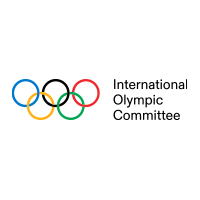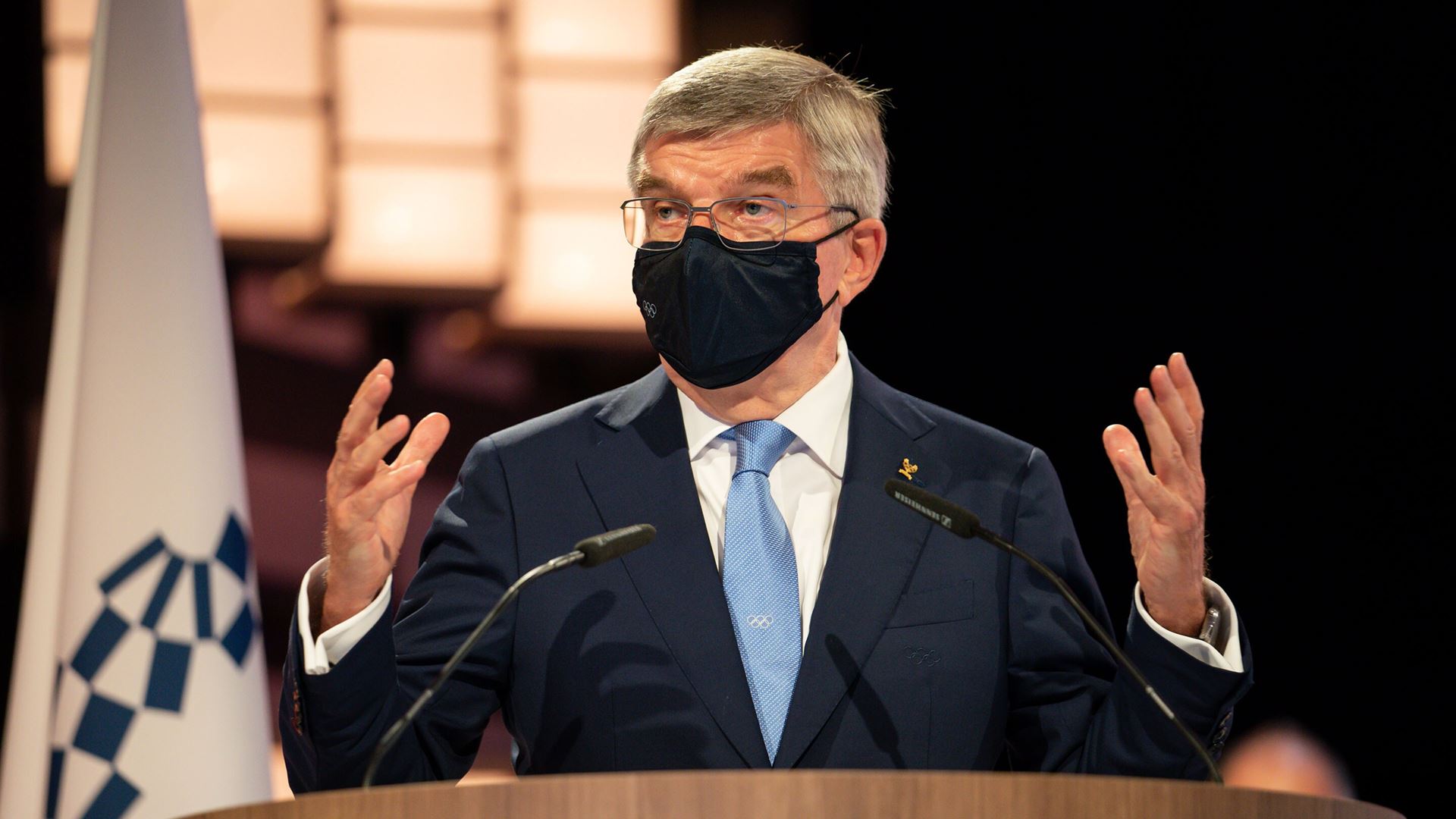20 Jul 2021 - With three days to go to the Opening Ceremony of the Olympic Games Tokyo 2020, International Olympic Committee (IOC) President Thomas Bach examined the distant – and not so distant – past to draw lessons and hope for brighter times.
For his welcome today to the 138th IOC Session, which is taking place in the Japanese capital, the IOC President found inspiration in a quote from the founder of the IOC, Pierre de Coubertin: “The Olympic Games are a pilgrimage to the past and an act of faith in the future.”
For President Bach, these words take on special meaning on the eve of these Games: “Because with the Olympic Games Tokyo 2020, we are committing an act of faith in the future. Just like the Olympic Games Tokyo 1964 marked a new era for a peaceful and dynamic Japan, the Olympic Games Tokyo 2020 will give humanity faith in the future.”
The Session was opened by Japanese Prime Minister Suga Yoshihide, who asserted that the significance of Tokyo 2020 will not be hampered or reduced even with the limits on spectators: “In these Games, 4.9 billion people in the world will be rivetted to their TV screens. The world is faced with great difficulty – now is the time that we have to unite and, with the efforts and wisdom of humankind, deliver the Games. We can do that.
“In the Tokyo Games of 1964 I was a senior high school student, but I still vividly remember the performances of the athletes. In this year’s Games, I am sure that the performances of the athletes will give dreams, hope, emotional experiences and, most of all, courage to the children and the youth.”
Prime Minister Suga was preceded at the Session by Tokyo 2020 Organising Committee President Hashimoto Seiko and Japanese Olympic Committee President Yamashita Yasuhiro. In prioritising the delivery of safe and secure Games, Hashimoto also stressed the importance of setting the stage for the athletes: “The Tokyo Games – these postponed Games – are a first-ever challenge in the history of the Olympic Games, but there are only three days to go. We have come this far.
“The Tokyo Games will start, overcoming many difficulties. The world over, athletes are coming to Japan. Sport and the athletes will present the power to change the world and our future. I am confident about that.”
The first to speak after the welcome by President Bach was Tokyo Governor Koike Yuriko, who also highlighted the inspirational role of the athletes: “This time around, many athletes have had to overcome the difficulty of postponement, but have continued to persevere in their training.
“As the world faces the challenges of the COVID-19 pandemic, when athletes shine, they really become the light of hope for the people.”
President Bach’s belief that the Games will give humanity faith in the future comes from the incredible support, collaboration and solidarity shown by so many across the globe and in the Olympic Movement during the pandemic: “It starts with the heroic efforts of all the doctors, nurses, healthcare workers and the many volunteers.”
At the same time, the IOC President also remembered all those people in Japan and around the world who have been affected and continue to be affected by this global pandemic, by standing for a minute’s silence to honour the memory of all those the world has lost.
President Bach recalled that all the challenges for the Olympic Games could be overcome only because of the trustful partnership and friendship throughout the past eight years between the Olympic and Paralympic Movement and the Japanese parties, particularly the Government of Japan, the Tokyo Metropolitan Government and the Tokyo 2020 Organising Committee.
He also highlighted the support expressed by the G20 and G7 countries, as well as by the United Nations and its agencies, which demonstrated how much the entire international community values the unifying power of sport.
The IOC President admitted that, over the past 15 months, there had been doubts every day, which could not be expressed at the risk of adding to the many doubts already surrounding the Olympic Games. “In order to arrive at this day today, we had to give confidence. We had to show a way out of this crisis. We had to provide stability. We had to build trust. We had to give hope,” said Bach.
He went on to explain why the decision to postpone the Games was taken over the option to cancel them: “Cancellation would have been the easy way for us. We could have drawn on the insurance that we had at the time and moved on to Paris 2024. But in fact, cancellation was never an option for us: the IOC never abandons the athletes.
“Therefore, we took the unprecedented decision to postpone the Olympic Games. Today, I can admit that we did not know how complex this would be. The only certainty we had was that, rather than cashing in on the insurance, we would have to invest much more to make these Olympic Games possible.”
He continued to note that the pandemic had had dramatic consequences not only for the Olympic Games, but the entire world of sport: “We therefore set three goals: organise the postponed Olympic Games; support the Olympic community to overcome the crisis; and emphasise the essential role of sport in society.”
For President Bach, the shared top priority of ensuring safe and secure Games was possible only due to a truly outstanding show of unity and resolve by the Olympic community. First of all, the athletes, who had persisted through it all, showing so much determination and resilience; but also the International Federations, the National Olympic Committees, the TOP Partners and the Rights-Holding Broadcasters.
He also extended his thanks to all the manufacturers that had contributed to an unprecedented vaccination effort. In particular, Pfizer-BioNTech, with their donation of vaccines not only to the Olympic teams worldwide but also to the volunteers and the staff members of the Organising Committee, and to other Olympic Games participants from Japan.
“We did it together. We did it for the athletes,” the IOC President said.
With a financial envelope of up to USD 800 million (USD 650 million related to the costs of organising the postponed Olympic Games and USD 150 million as an aid package to the Olympic Movement) and an increased Olympic Solidarity budget for the period 2021 to 2024 (by 16 per cent, for a total of USD 590 million, and a 25 per cent increase in direct athlete support), he described how the IOC was endeavouring to apply one of the lessons learned during the pandemic: “We need more solidarity. More solidarity within societies and more solidarity among societies.”
The second lesson – digitalisation – had been addressed through the Digital Engagement Strategy, by engaging with more people more frequently, spreading the Olympic message and values in new ways that connected people directly with the athletes and these values. Both solidarity and digitalisation were being put into action with Olympic Agenda 2020+5.
President Bach concluded his speech with another meaningful quote by Pierre de Coubertin, uttered at an equally crucial juncture in time for humankind: “Speaking before the Olympic Games Antwerp 1920 and during the last global pandemic – a moment in history in some ways strikingly similar to our times today – he said, and I quote: ‘Humanity must find all the strength it can in the heritage of the past in order to build its future. Olympism is one of those strengths.’”
The IOC President’s full welcome speech to the 138th IOC Session can be found here.
The IOC President’s full opening speech to the 138th IOC Session can be found here.

